Here are accounts of seven well known celebrities who embraced Islam later in life.
Muhammed Ali
Muhammad Ali, born Cassius Marcellus Clay Jr. on January 17, 1942, in Louisville, Kentucky, is widely regarded as one of the greatest boxers of all time. Beyond his prowess in the boxing ring, Ali’s life was marked by a series of significant personal and ideological transformations. One of the most pivotal moments in his life came in 1975 when he made the decision to convert to Islam.
Originally known as Cassius Clay, Ali’s conversion was a profound reflection of his spiritual journey. In 1975, he embraced the teachings of Islam and formally joined the Nation of Islam, a religious and political movement founded in the United States during the early 20th century. The Nation of Islam played a crucial role in shaping Ali’s initial understanding of Islam, introducing him to a unique blend of religious teachings and advocacy for the rights of African Americans.
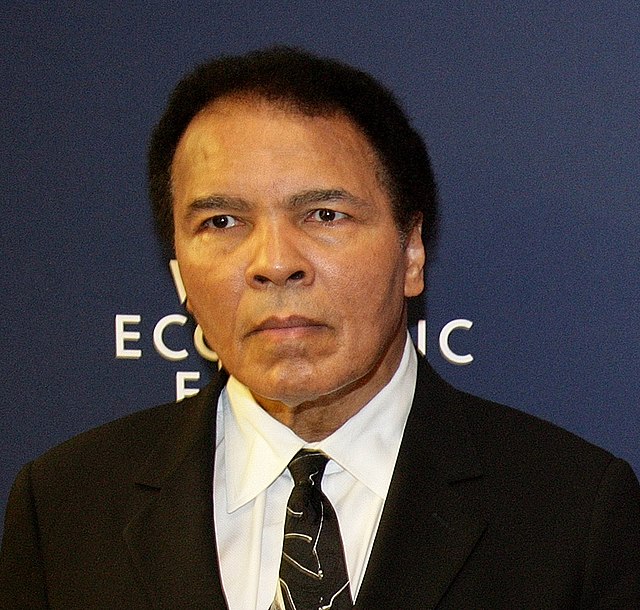
His Journey Into Islam
Ali’s conversion to the Nation of Islam was accompanied by a name change. He adopted the name Muhammad Ali. He became an outspoken advocate for civil rights and social justice. This period coincided with a time of heightened racial tensions and social upheaval in the United States, and Ali’s bold and unapologetic stance on racial and religious issues made him a polarizing figure.
Later in his life, Ali underwent another significant transformation in his religious beliefs. He transitioned from the Nation of Islam to Sunni Islam, a broader and more widely practiced branch of the Islamic faith. This shift in affiliation reflected Ali’s evolving understanding of Islam and his desire for a more inclusive and universal approach to the religion.
Throughout his journey, Ali remained a towering figure, not only in the realm of sports but also as a symbol of resistance, resilience, and the pursuit of one’s convictions. His legacy extends beyond his achievements in the boxing ring, encompassing his contributions to the broader social and cultural landscape. Muhammad Ali’s conversion to Islam is an integral part of his multifaceted identity, illustrating the depth of his convictions and the complexity of his journey toward spiritual enlightenment.
Cat Stevens
Cat Stevens, born Steven Demetre Georgiou on July 21, 1948, in London, England, achieved international acclaim as a singer-songwriter in the 1960s and 1970s. His soulful voice and introspective lyrics made him a prominent figure in the folk and rock music scenes. However, in the late 1970s, Stevens underwent a profound transformation that not only altered the course of his musical career but also redirected the trajectory of his life.
Before delving into his conversion, it’s crucial to establish Stevens’ significance in the music industry. As Cat Stevens, he produced a string of hits such as “Wild World,” “Father and Son,” and “Peace Train,” earning him a reputation as a sensitive and influential songwriter. His albums, including “Tea for the Tillerman” and “Teaser and the Firecat,” became iconic works that defined the singer-songwriter genre.
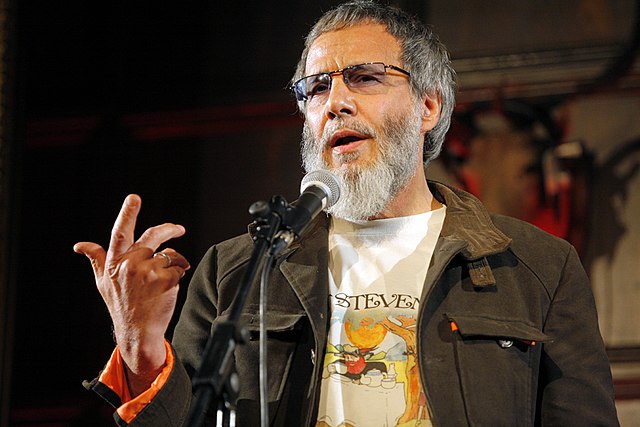
His Journey Into Islam
In the late 1970s, Cat Stevens experienced a spiritual awakening that led him to explore and eventually embrace the teachings of Islam. This pivotal period marked a turning point in his life and career. He converted to Islam, adopting the name Yusuf Islam as a symbol of his newfound faith.
Yusuf Islam’s conversion had a profound impact on his artistic endeavors. In the wake of his spiritual transformation, he made the decision to step away from the music industry, leaving behind the fame and success he had achieved as Cat Stevens. This departure was fueled by his desire to align his life with Islamic principles and values.
Yusuf Islam’s journey extended beyond the realm of personal faith; it manifested in a commitment to philanthropy and education. Embracing the Islamic tradition of charitable giving, he became actively involved in humanitarian work. His contributions ranged from supporting various charitable organizations to spearheading initiatives aimed at eliminating poverty and promoting education globally.
Moreover, Yusuf Islam played a crucial role in educational endeavors, emphasizing the importance of understanding Islam in a broader context. He became an advocate for dialogue and understanding between different cultures and religions, utilizing his platform to bridge gaps and dispel misconceptions.
In essence, the conversion of Cat Stevens to Yusuf Islam represents a profound and multifaceted transformation—from a celebrated musician to a committed philanthropist and advocate for education and interfaith understanding. His journey reflects the intricate interplay between personal spirituality, artistic expression, and social responsibility, underscoring the depth of his commitment to a life guided by Islamic principles.
Malcolm X
Malcolm X, born Malcolm Little on May 19, 1925, in Omaha, Nebraska, was a pivotal figure in the American civil rights movement during the mid-20th century. His life and activism were marked by a journey of transformation that profoundly influenced the fight for racial equality and human rights.
Malcolm X’s early life was marred by adversity, including the violent death of his father and his mother’s institutionalization. Raised in foster care, he experienced systemic racism and discrimination, which fueled his resentment and anger towards a society that marginalized African Americans.
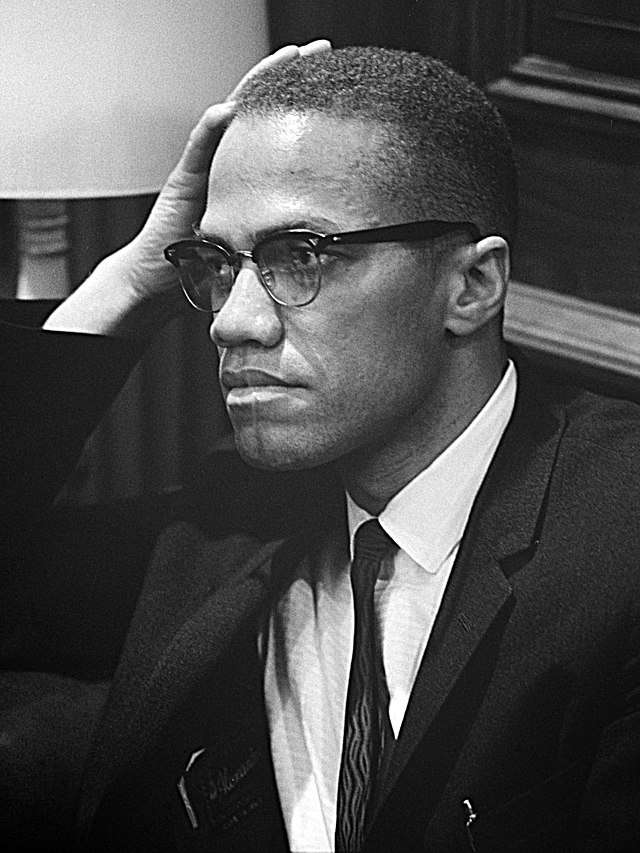
Marion S. Trikosko courtesy of Creative Commons
His Journey Into Islam
Malcolm X found inspiration in the Islamic teachings that emphasized unity and brotherhood regardless of color. He underwent a transformation during his pilgrimage to Mecca, where he experienced a more inclusive and universal understanding of Islam. This pilgrimage, known as Hajj, profoundly changed his views on race relations.
Upon returning to the United States, Malcolm X shifted his focus from racial separatism to advocating for human rights and equality for all. He founded the Organization of Afro-American Unity (OAAU), which aimed to unite people of African descent and address common issues.
Malcolm X became an outspoken critic of systemic racism, not only in the United States but on a global scale. His commitment to human rights and social justice was evident in his efforts to bring the plight of African Americans to the international stage. His speeches and writings emphasized the need for unity and collaboration among oppressed peoples worldwide.
Tragically, Malcolm X was assassinated on February 21, 1965, at the Audubon Ballroom in New York City. Despite his untimely death, his legacy endures as a symbol of resistance, transformation, and the ongoing struggle for human rights and racial equality.
Jermaine Jackson
Jermaine Jackson, born on December 11, 1954, in Gary, Indiana, is an American musician and a member of the iconic Jackson family. He gained prominence as a member of the Jackson 5, a Motown group formed with his siblings, including the legendary Michael Jackson. Jermaine played a vital role in the group, contributing as a vocalist and bass guitarist during their rise to international fame in the late 1960s and early 1970s.
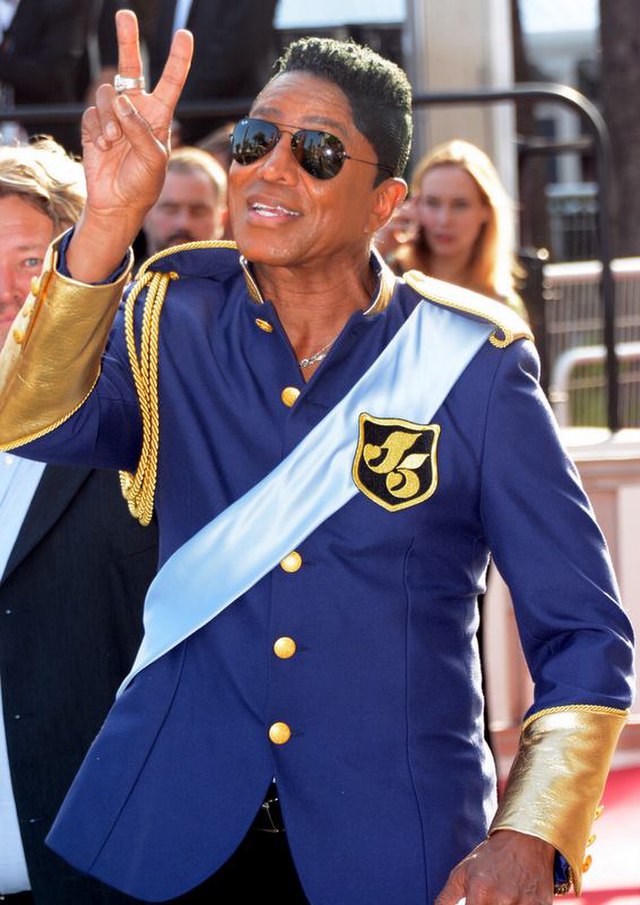
His Journey Into Islam
In 1989, Jermaine Jackson underwent a significant and deeply personal transformation by converting to Islam. This decision marked a profound shift in his spiritual outlook and became a central aspect of his identity. Jermaine embraced Islam and his journey toward this conversion is rooted in his quest for spiritual fulfillment and a closer connection to his beliefs.
slam’s principles of unity, peace, and submission to a higher power resonated with Jermaine, offering him a framework for understanding his purpose and fostering a deeper connection to spirituality.
Following his conversion to Islam, Jermaine Jackson experienced notable changes in his public life. His commitment to Islamic values became evident in both his personal choices and public persona. While he continued his involvement in the music industry, his faith influenced the themes and messages in his work.
Jermaine Jackson also became an advocate for interfaith understanding, using his platform to bridge gaps between different cultures and religions. His commitment to fostering dialogue and dispelling misconceptions about Islam showcased a dedication to promoting unity and harmony.
Furthermore, Jermaine’s public appearances often reflected his adherence to Islamic principles, including modest attire and expressions of humility. His transformation was not just a personal one but also a public declaration of his beliefs and a testament to the diversity of the Jackson family’s spiritual journeys.
Dave Chappelle
Dave Chappelle, born on August 24, 1973, in Washington, D.C., is celebrated as one of the most influential and thought-provoking comedians of his generation. His career took off in the 1990s, characterised by his unique style, sharp wit, and insightful social commentary. Chappelle gained widespread recognition for his Comedy Central sketch comedy series, “Chappelle’s Show,” which ran from 2003 to 2006 and became a cultural phenomenon, addressing race, class, and societal issues with humor and intelligence.
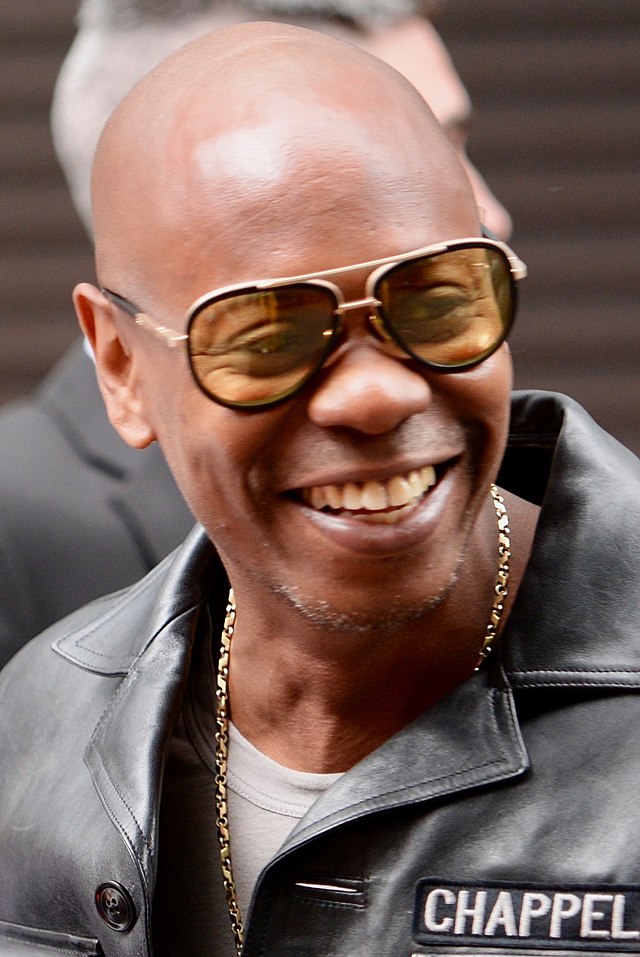
His Journey Into Islam
In the early 1990s, Dave Chappelle underwent a significant personal transformation by converting to Islam. While he hasn’t been extensively vocal about the details of his conversion, it is known that his embrace of Islam had a profound impact on his perspectives and outlook on life. Islam became a guiding force for Chappelle, influencing not only his spiritual beliefs but also shaping his views on social justice, empathy, and the human experience.
Chappelle’s comedic style, already marked by a keen observational lens, took on new dimensions with the incorporation of his Islamic worldview. His material began to reflect a deeper introspection, tackling societal issues with a nuanced understanding informed by his faith.
Dave Chappelle, known for his candid and unfiltered approach, has occasionally made public statements related to his faith. While he is generally private about his personal life, his comedy specials and interviews have provided glimpses into how his Islamic beliefs intersect with his comedic and philosophical perspectives.
Moreover, Chappelle’s public persona reflects a commitment to authenticity and staying true to his principles, which align with his Islamic values. His decision to step away from the spotlight at the height of his career, as seen with his departure from “Chappelle’s Show,” has been attributed to a desire for personal integrity and a break from the pressures of fame.
In essence, Dave Chappelle’s conversion to Islam has been a transformative aspect of both his personal and professional life. It has enriched his comedic perspective, adding layers of insight and depth to his social commentary while influencing his public actions and decisions. Chappelle’s journey reflects the dynamic interplay between faith, identity, and the pursuit of authenticity in the public eye.
Dr. Jeffrey Lang
Dr. Jeffrey Lang is a notable figure who embarked on a remarkable spiritual journey. Born and raised in aCatholic family in Bridgeport, Connecticut, Lang initially embraced atheism during his youth. His academic pursuits led him to a distinguished career as a mathematics professor, specialising in mathematics education. Lang’s rational and analytical mindset, honed through his academic endeavours, played a crucial role in shaping his worldview.
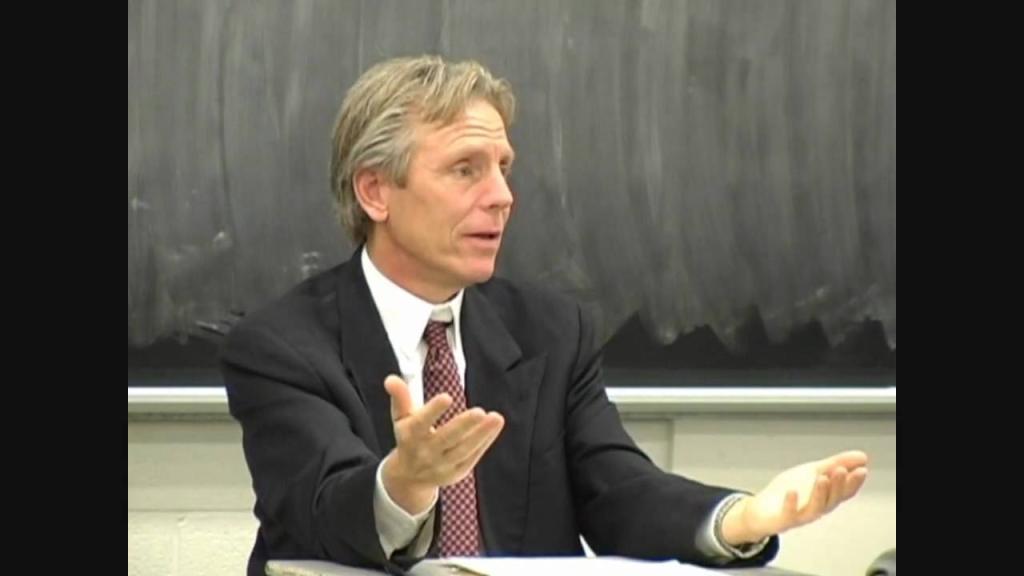
His Journey Into Islam
In the early 1980s, Dr. Lang underwent a profound and unexpected transformation when he embraced Islam. His journey from atheism to Islam is chronicled in his autobiographical work, “Struggling to Surrender: Some Impressions of an American Convert to Islam.” This book not only serves as a personal narrative but also provides insights into the intellectual and emotional challenges encountered by an individual navigating a significant religious and philosophical shift.
“Struggling to Surrender” delves into the complexities of Dr. Lang’s internal struggles, exploring the intellectual and spiritual processes that led him to reevaluate his beliefs and ultimately embrace Islam. The book captures the essence of his journey, documenting the moments of revelation, self-discovery, and the internal conflicts that accompanied his conversion.
As an American convert to Islam, Dr. Jeffrey Lang’s experiences offer a unique perspective on the intersection of cultural, religious, and personal identity. His journey reflects the diversity within the Muslim community and challenges stereotypical notions about the backgrounds of those who choose Islam.
In addition to his written work, Dr. Lang has been an articulate and engaging speaker, sharing his experiences and insights at conferences, universities, and Islamic events. His ability to bridge the gap between his academic background and his newfound faith has made him a relatable figure for many seeking to understand Islam from an intellectual standpoint.
Dr. Lang’s experiences as an American convert also highlight the importance of community and mentorship in the process of embracing a new faith. His integration into the Muslim community provided him with a support system and a sense of belonging, crucial elements in navigating the challenges that come with a significant religious transformation.
Kristiane Backer
Kristiane Backer, born on December 13, 1965, in Hamburg, Germany, is a prominent television presenter and journalist. She gained recognition in the 1990s for her work as a presenter on MTV Europe, where she hosted popular music programs. Her career as a television personality made her a familiar face in the entertainment industry and established her as a respected figure in media.

Her Journey Into Islam
Kristiane Backer’s life took a significant turn when she crossed paths with Imran Khan, the legendary Pakistani cricketer, in the early 1990s. Their meeting marked the beginning of a transformative journey for Backer, leading her to explore and eventually embrace Islam. Imran Khan’s influence played a crucial role in shaping her spiritual awakening.
Her conversion to Islam represented a profound personal and spiritual commitment. The transition from her life in the entertainment industry to a path guided by Islamic principles showcased the depth of her conviction. This shift was not merely a change in religious affiliation but a holistic transformation that affected various aspects of her life, including her outlook on relationships, purpose, and personal fulfillment.
After embracing Islam, Kristiane Backer became a vocal advocate for interfaith dialogue and understanding. Her experiences, particularly her journey from the glitzy world of television to a life guided by Islamic principles, provided her with a unique perspective on bridging cultural and religious divides.
Backer’s commitment to interfaith dialogue is evident in her public engagements, where she emphasizes the commonalities among diverse communities and encourages open conversations. Through her advocacy work, she strives to dispel misconceptions about Islam and foster a spirit of tolerance and mutual respect among people of different faiths. In various public forums, interviews, and written works, Kristiane Backer shares her personal story as a means of promoting understanding and breaking down stereotypes. Her efforts contribute to the broader narrative of individuals who, through their personal journeys, become ambassadors for unity, compassion, and coexistence in a multicultural world.
















